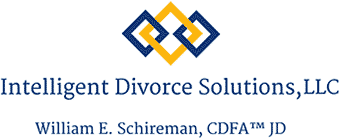The Code of Ethics and Professional Responsibility is provided as an expression of the ethical standards that the Institute for Divorce Financial Analysts™ has adopted and every Certified Divorce Financial Analyst® has agreed to abide by. The code applies to every Certified Divorce Financial Analyst designee and candidate in conducting divorce-planning work.
- Integrity. Maintain the highest standard of honesty and integrity when dealing with colleagues, the IDFA, clients or attorneys. Avoid practices that would dishonor your profession, IDFA™ or any of its members and employees.
- Competence. In addition to satisfying the continuing education requirement needed to maintain the use of the designation, every CDFA should serve their clients competently. Therefore, acquiring the knowledge and skill necessary to do so in divorce planning is required.
- Objectivity. Objectivity requires a CDFA to be intellectually honest and impartial. Regardless of who hired him or her, a CDFA will always be objective when dealing with clients and their attorneys.
- Fairness. CDFA professionals who maintain their financial practices should make divorce- planning recommendations independent of the potential financial planning or investment management relationship, doing so will alleviate the risk of potential conflict of interest. To do so, a CDFA will need to disclose to their prospective clients that their financial practices and their divorce-planning practices are independent business relationships and to delineate clearly which services are included in each practice.
- Confidentiality. A CDFA shall hold client information to the highest standard of confidentiality. Short of client consent or appropriate legal process, a CDFA shall not release any information about their client before, during or after the divorce.
- Professionalism. A CDFA professional’s interactions shall project the highest levels of professionalism. Whether dealing with clients, attorneys, IDFA or any of its partners or subsidiaries a CDFA will behave in a professional manner.
- Scope. A CDFA professional, by education and training, is a specialist dealing in the financial issues of divorce. Working alongside the attorney who is licensed to practice law, a CDFA professional must never (unless licensed to do so) advise clients on their legal rights. In addition, a CDFA professional must never market his or her services in a misleading fashion or represent themselves as representatives of IDFA.
- Compliance. A CDFA professional will comply with all the laws related to the business they conduct and report to the IDFA any actions by other CDFA professionals that are illegal or in violation of this code. In addition, a CDFA professional will comply with any requests from the IDFA for information regarding any complaints brought against him or her. If IDFA, after comprehensive investigation, decides that either suspension or revocation of the CDFA designation is the proper remedy, a CDFA professional will comply with the order.
- Unauthorized practice of law. A CDFA professional understands that, to practice law, one has to be licensed. Under no circumstances will a CDFA professional represent that the IDFA certification is a license to practice law.
- Support. A CDFA professional will always support our profession and the IDFA as the main driving force behind the progress of the profession. Additionally, a CDFA professional will not collude, debase or discredit the IDFA or the profession.
